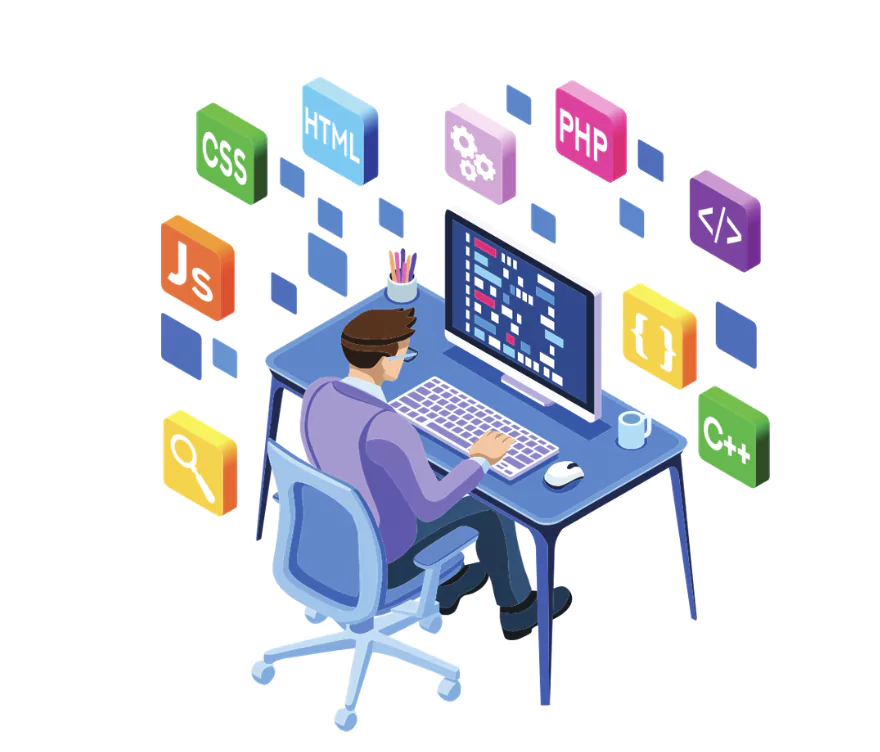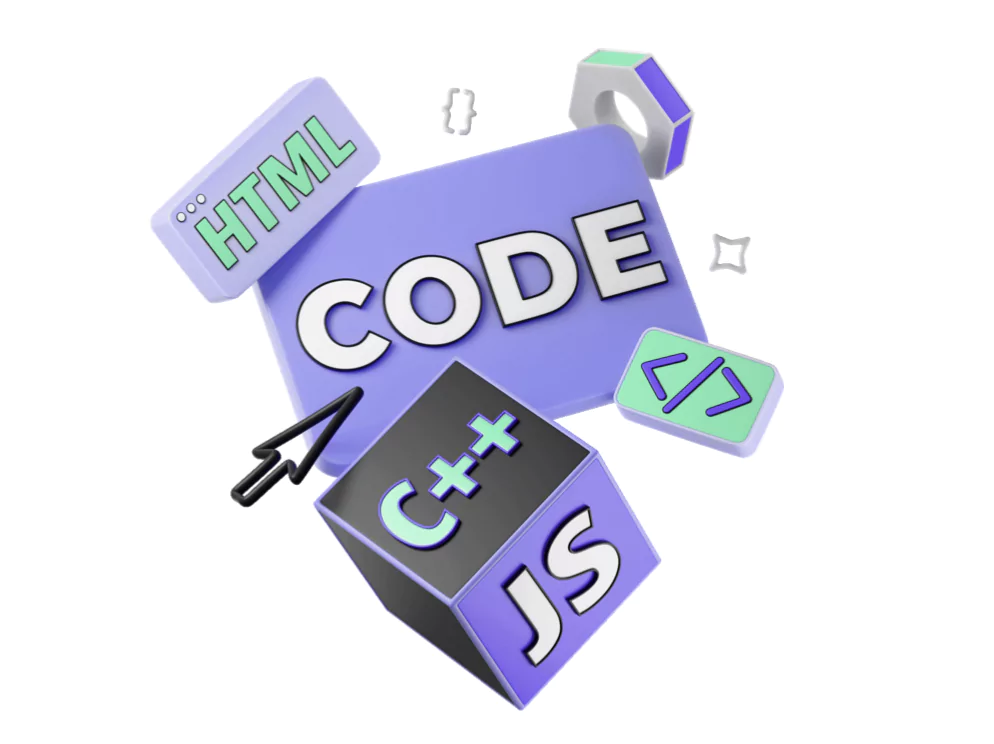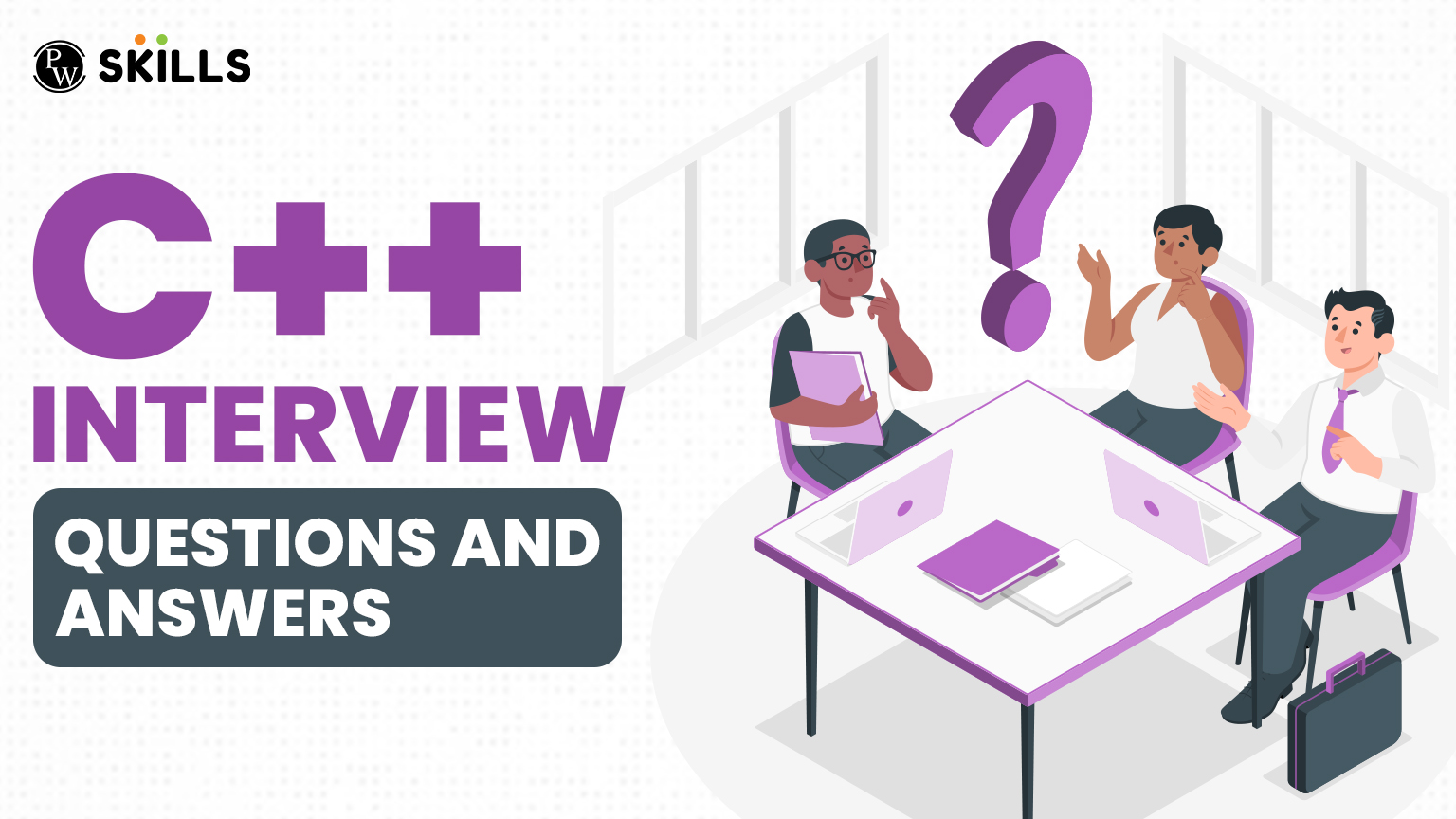Are you searching for C++ interview questions and answers to help you with your preparation. Prepare yourself completely with the most frequent interview questions asked during the interview of programming. Whether you are a fresher or experienced professional these basic questions are all you need for your preparation.
C++ language is one of the most popular programming languages in the world and more preferred by developers. If you are looking for a role in C++ programming language then this blog will help you get some of the most important C++ interview questions and answers to help you with your preparation.
Will Preparing With C++ Interview Questions Help?
These C++ interview questions and answers will help you get ready for your next programming interview. These frequent sets of questions collected from many C++ interviews help you get familiar with the topics that are more important and asked during interviews.

You can make your preparation strong around these more frequent topics asked during the interviews. You can also use it as a mock test after you complete your preparation and assess it regarding whether you need more to look or is it all done.
Important Topics for C++ Interview For Freshers
Candidates must go through these topics along with the C++ interview questions and answers. Let us highlight some of the most important C++ topics especially for freshers which are mentioned below.
| Topic | Key Topics |
| Basics of C++ | Structure, data types, variables, operators, typecasting, cin, cout |
| Control Flow | if, else, switch, loops (for, while, do-while), break, continue, goto |
| Functions | Declaration, definition, default & inline functions, recursion, overloading, call by value/reference |
| Object-Oriented Programming (OOP) | Classes, objects, constructors/destructors, inheritance, polymorphism, encapsulation, abstraction, static, this, friend function |
| Memory Management | Pointers, references, new/delete, pointer to object/function, shallow vs deep copy, const keyword |
| Standard Template Library (STL) | Vectors, lists, sets, maps, stack, queue, priority queue, iterators, STL algorithms (sort, find) |
| File Handling | File streams (ifstream, ofstream, fstream), read/write files, file modes |
| Exception Handling | try, catch, throw, custom exceptions |
| Constructors & Destructors | Types of constructors (default, parameterized, copy), overloading, order of constructor/destructor execution |
| Miscellaneous Concepts | Namespace, preprocessor directives, typecasting, lambda functions (C++11+) |
| Bonus: Coding Practice | Arrays, strings, linked list, stack, queue, searching, sorting, recursion, OOP-based problems |
Important Topics for C++ Interview For Professionals

Some major topics for working professionals who are learning C++ for their interview exams. Candidates must go through these topics along with the C++ interview questions and answers.
| Topics | Key Topics |
| Advanced OOP Concepts | Multiple inheritance, diamond problem, virtual inheritance, abstract classes, interface vs implementation |
| Design Patterns | Singleton, Factory, Observer, Strategy, Command, RAII (Resource Acquisition Is Initialization) |
| Memory Management | Manual vs smart pointers (unique_ptr, shared_ptr, weak_ptr), memory leaks, memory profiling |
| STL Deep Dive | Internals of vector, list, map, set; iterators, custom comparators, STL algorithms, performance analysis |
| Templates & Metaprogramming | Function and class templates, template specialization, SFINAE, variadic templates, CRTP |
| Multithreading & Concurrency | std::thread, std::mutex, std::lock_guard, condition variables, thread safety, deadlock, race conditions |
| Lambda & Functional Programming | Lambda Syntax, captures, use with STL, functors vs lambdas |
| Move Semantics & Rvalue References | Lvalue vs Rvalue, move constructor, move assignment, std::move, performance optimization |
| Exception Handling | Custom exceptions, noexcept, exception safety (basic, strong, nothrow guarantee), stack unwinding |
| Modern C++ (C++11 – C++20) | auto, nullptr, range-based for, constexpr, smart pointers, lambdas, structured bindings, concepts (C++20) |
| Compiler Behavior & Optimization | Inline functions, compiler optimizations, const correctness, copy elision, object slicing |
| Code Architecture & Design | Decoupling, SOLID principles, modularity, testability, code reuse |
| Debugging & Tools | Valgrind, gdb/lldb, static analyzers (Clang-Tidy), memory profilers |
| Build Systems & Compilation | Makefile, CMake, linking stages, object files, preprocessor, compiler flags |
| Networking (if applicable) | Socket programming in C++, multithreaded server/client, protocol-level understanding (TCP/UDP) |
15 C++ Interview Questions & Answers For Beginners

Let us now check some of the best interview questions listed for beginners who are new to C++ language and want to succeed in their upcoming interview.
Q1. What is C++ programming language?
Ans: C++ is a high-level, general-purpose programming language developed by Bjarne Stroustrup as an extension of the C language. It supports object-oriented programming features like classes and objects, along with other programming paradigms such as procedural and generic programming. C++ is widely used for system software, game development, real-time simulations, and performance-critical applications.
Q2. What are the basic features of C++ programming language?
Ans: C++ supports both procedural and object-oriented programming, making it a suitable hybrid language. It also allows for low-level memory manipulation through pointers and manual memory management using new and delete.
Some of the key features include classes and objects, inheritance, polymorphism, encapsulation, abstraction, function overloading, operator overloading, and support for templates.
Q3. What is the difference between C and C++ language?
Ans: C programming is a procedural programming language which provides object-oriented features, allows better code optimisation and reuse. While, C++ language supports classes, inheritance, and polymorphism, which are not available in the previous C language.
Also C++ language has a better support for data abstraction and templates, whereas C focuses purely on functions and structures.
Q4. What is a Class and Object in C++?
Ans: A class in C++ programming language which is a blueprint and mapping of creating objects. It contains attributes and the methods or functions. An Object is an instance of class while classes in C++ is a blueprint for creating objects. It defines a data structure i,e. attributes and the functions i,e. methods which operate on that data.
An object on the other hand is an instance of a class. Let us understand it with an instance, take a class as a plan and the object as the actual product built from that plan. For example, a Car class might have attributes like color and speed, and objects like car1 or car2 would represent specific cars.
Q5. What is Inheritance in C++?
Ans: Inheritance is the capability of a class to derive properties and characteristics from another class which is called inheritance. It is a practice of creating new classes using the old or existing ones. When a class inherits from another class it can reuse methods and attributes.
For example, a Bird class can inherit from an Animal class and gain all of its properties while adding its own features like fly()
Q6. What is Polymorphism in C++?
Ans: Polymorphism means an entity which exists in different or many forms. It allows functions or methods to behave differently based on the input provided. There are two types of Polymorphism in C++ language which you will know in this C++ interview questions and answers series.
Compile time polymorphism consists of function and overloading which allow the use of many methods with a single name but different return value. Run time polymorphism uses virtual functions which executes the compile code by the computer.
Q7. What is Encapsulation?
Ans: Encapsulation is a concept of Object Oriented Programming which involves wrapping data and code into a single unit which is a class. It hides the internal technical details which are not important for the users and presents only what is necessary using various public methods. This promote security and prevent unauthorised access.
Q8. What is Abstraction in C++?
Ans: Abstraction is presenting only the essential features inside a class and hiding the technical and in-depth background details. It is implemented using the access specifiers which can be public, private and protected.
For example, when using a TV remote, you don’t need to know how the electronics inside work where all you need is to know the buttons and press them to perform a particular function.
Q9. What is the use of the ‘this’ pointer in C++?
Ans: The this pointer is an implicit pointer available in all non-static member functions of a class. It refers to the current object invoking the function. It’s useful when you need to distinguish between local variables and class members with the same name.
Q10. What are Constructors and Destructors?
Ans: Constructors are special functions which get automatically called when an object is created. It is used to initialise the object properties. A destructor on the other hand is automatically invoked when the object is destroyed and primarily used to free up resources from the system.
Q11. What is Function Overloading in C++?
Ans: Function overloading is a process in which you can create multiple functions using the same name but with different parameter lists. The compiler then decides which function to be called based on the number and type of arguments. This helps you improve the code and readability of the program. These types of C++ interview questions and answers are important especially for interviews,
Q12. What are Access Specifiers in C++?
Ans: Access Specifiers are used to define the visibility of the class members in object oriented programming. It is of two types i,e. Public, private, and protected. Public members in the list can be accessed from anywhere while private members can only be accessed within the class and protected members can be accessed by only the defined class and its derived classes.
Q13. What is a Virtual Function?
Ans: A Virtual function in C++ programming is used to override a method in a derived class when used with a class pointer or references. This can be used to enable the runtime polymorphism which is important for achieving flexible and more optimised code.
Q14. What is the difference between new/delete and malloc/free?
Ans: New or delete are operators in C++ language which can be used for dynamic memory allocation and also used to call for constructors/destructors. malloc and free are C program styled functions which allocate and deallocate memory without calling constructors or destructors. Hence, C++ developers prefer new and delete for object management in a better and optimised manner.
Q15. What is the Standard Template Library (STL)?
Ans: Standard Template Library or STL is a powerful library in C++ that provides ready-to-use classes and functions. It also includes important collections like vectors, lists, stacks, queues, and algorithms like sorting, searching, etc. STL saves the development time and promotes code reusability through templates.
10 C++ Interview Questions And Answers For Experts

Some of the major C++ interview questions and answers are especially prepared for professions having a good level of experience in C++ programming language.
Q1. What is the difference between deep copy and shallow copy in C++?
Ans: Shallow copy is used to create a copy of an object with references from dynamically allocated memory. The major difference is that the changes done in one of the objects gets reflected in the other object.
While a deep copy is an advanced version which duplicates everything including the actual data kept in the dynamic memory. You can use assignment operator and copy constructor for implementing deep copying.
Q2. What are smart pointers in C++ and why are they important?
Ans: Smart Pointers in C++ programming are wrapper classes around raw pointers which are used to automatically memory. C++ uses smart pointers like unique_ptr, shared_ptr, and weak_ptr. They avoid memory leaks by automatically deallocating memory when it is no longer needed.
Q3. Explain RAII (Resource Acquisition Is Initialization) in C++.
Ans: RAII is a programming entity in C++ language where various resources like file handles, sockets, memory are integrated in the constructor and released in the destructor. This is used to ensure that there are no exceptions or leaks in data safety.
Q4. What is move semantics in C++11 and how is it useful?
Ans: Move semantics is an important segment in C++ language which is used to move from one object to another object rather than copying the complete data of the object.
This feature is available in the C++11 variant of the program and can be used to point one object to another object in the memory.
Q5. How does C++ implement polymorphism at runtime?
Ans: C++ allows implementing polymorphism at runtime using virtual functions and virtual tables. Each object of a class with the virtual functions stores a pointer to the v table or virtual table.
When a function is called through a base class pointer or reference, the correct derived function is chosen at runtime via this mechanism. This enables dynamic behavior essential in many design patterns.
Q6. What are templates in C++ and how do they enable generic programming?
Ans: Templates in C++ help us to write generic code for functions which can be used with different data types and work as a blueprint for creating generic classes or functions.
C++ also supports multiple template specialization and template metaprogramming, which enable powerful compile-time logic. Templates are the backbone of the Standard Template Library (STL) and are widely used in modern, reusable code design.
Q7. What are the differences between struct and class in C++?
Ans: The concepts of Struct and class are an important part of C++ interview questions and answers. Struct offers the default access for modifiers without any restrictions i,e. Public while the class provides it in private form.
A structure is a user defined data type used to store similar, different data types or a combination of both within a single variable. Classes are also user defined functions used to implement polymorphism, destructors, inheritance, and more.
Q8. How does exception handling work in C++?
Ans: C++ can handle errors using try, catch and throw blocks. When an error takes place it uses a throw statement which is used to highlight and signal the exception. The catch block now captures and handles the block. Proper exception handling ensures proper stability and enhanced user experience on the platform.
Q9. What is the role of the const keyword in C++?
Ans: The const keyword in C++ programming is used with methods, variables, or with the object of class. We can use const with a new array, object, function, RegExp, and more. Const keyword is immutable and prevents any kind of modification in data.
Q10. What are Lambda expressions in C++?
Ans: Lambda expression is a way of defining any anonymous method or object and passed as an argument to a function. They are useful for tasks like filtering, sorting, and working with the STL algorithms. It can simplify code when defining anonymous functions which returns a value when feeded with a parameter.
Also Read:
- Concept of OOP in C++: For Beginners In Programming
- 80 Cplusplus Interview Questions: For Freshers & Experienced Professionals
- How to Write First C++ Program, Example Hello World
- C++ Game Development: How Is C++ Used in Game Development?
Learn DSA With C++ Program with PW Skills
Prepare for interviews with C programming and DSA with Decode DSA With C++ Course. Master C++ programming with practice exercises, module assignments, real world projects, and certification exams.
Solve real world examples with C++ programs and gain knowledge of programming with C++ with interactive classes and in depth live sessions with dedicated mentors at PW Skills.

